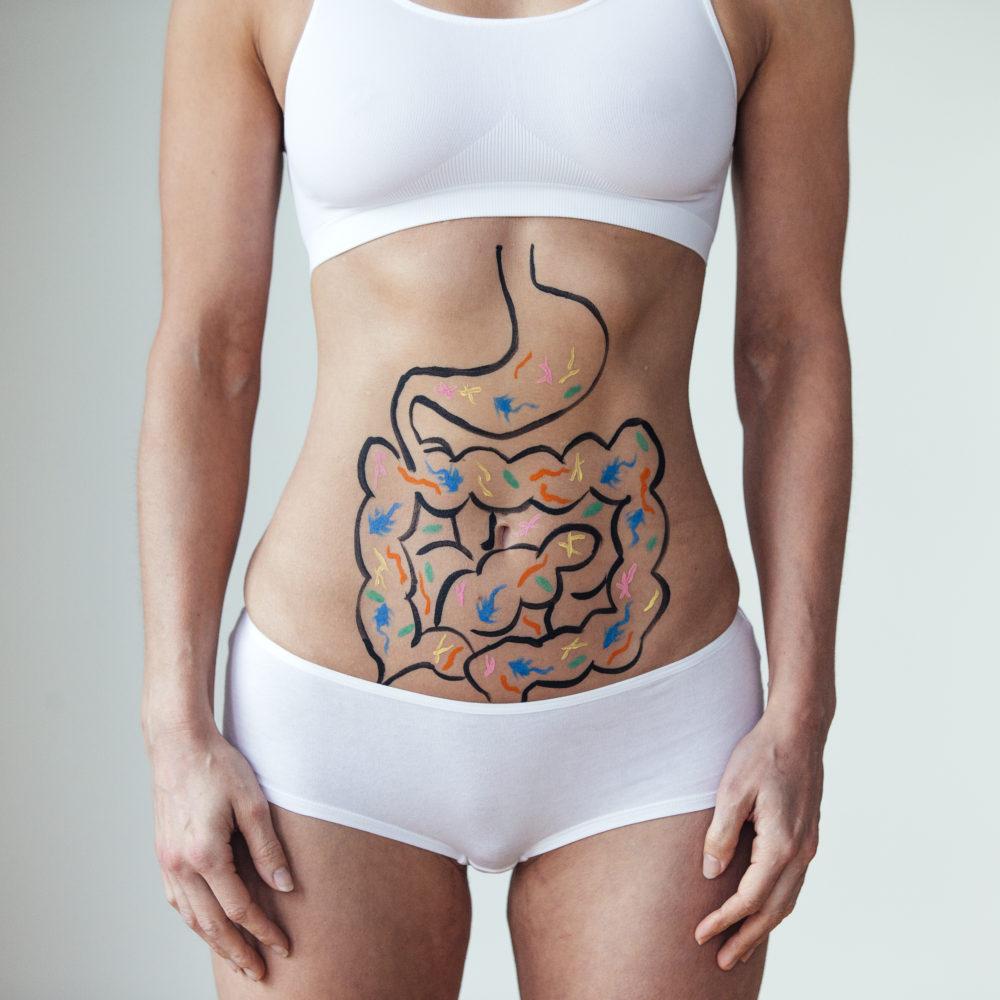
Let’s play a game about gut health. Think of a sentence using the word “guts.”
Did your sentence sound something along the lines of:
- That took a lot of guts.
- I hate your guts!
- I need to lose this gut/these guts.
- I miss that Nickelodeon show, Guts.
Suffice to say, being used to describe strong human attributes such as a courage, disdain, and vanity (not to mention, an awesome 90’s kids show), “gut” is a very powerful word. Let’s take a look at what gives guts such strength.
The Second Brain
The gut containing this much power in the human language dates back to our ancestors who came upon the realization that the gut is in fact the “second brain” of the body. This was figured out over 2,000 years ago by the “Father of Medicine,” Hippocrates when he stated that, “All disease begins in the gut.” Well, father knows best.
As humans evolved, our first brains have undoubtedly become more intelligent (healthier) than our ancestors. Whereas, our second brain, the gut, has become weaker. This is due to to the fast-paced lifestyle of today’s human whose diets consist of refined sugars, artificial colorings, and hormone-filled fried foods. In turn, the steady rise of those living with poor gut health coincides with an increased number of cases of people suffering from a variety of life-threatening conditions.
Studies have shown that poor gut health can result in:
- Obesity
- Eczema
- Crohn’s Disease
- Acne
- Diabetes
- Liver Disease
- Chronic Heart Disease
- Autism
- Chronic Kidney Disease
- Rheumatic Arthritis
- Inflammatory Bowel Diseases
- and many more…
What gives the gut this much power over the body is what is at its core. Let’s dissect the gut like we all had to do to those poor little froggies in bio class…just with much less mess.
Welcome to the Human Microbiome
Tiny homes are all the rage right now. Well, your body is the estate that the human microbiome’s tiny home is built on. Within the tissues that comprise the gut lies a complex ecosystem made up of different bacteria. This area is called the microbiome.
The microbiome consists anywhere from 10 to 100 trillion symbiotic microbial cells. These cells contain individual genes called microbes that serve as our genetic footprints. This has been further corroborated by studies confirming that children diagnosed with Autism have lower numbers of microbes in their gut. The microbes present in your microbiome influences important factors of human life such as:
- Weight
- Predisposition to Specific Diseases
- DNA
- Sleep Patterns
- Mood
The cells containing these genes mostly live inside bacteria within our system that can survive the gut’s acidity levels. An unhealthy gut is a breeding ground for bad bacteria containing microbes that do damage to the body. Essentially, bad bacteria breeds bad bacteria.
How to Improve Gut Health
The best way to create a healthy environment for good bacteria to prosper is to introduce good bacteria into the system. Good bacteria breeds good bacteria, counteracting bad bacteria breeding bad bacteria. As a result, this leaves gut health in good balance. It’s that whole yin to the yang thing.
So how do you introduce good bacteria into your system? By consuming it. The answer lies in probiotics, and we happen to know a thing or two about that as well.
What Are Probiotics?
You know it’s good for you because the news and a Greek yogurt container tell you it is…but here’s why.
Probiotics are “good bacteria” that line the gut. As they take up residence in the lining, these bacteria aid in the absorption of nutrients as well as strengthen the immune system. There are seven main strains that attach to your gut lining, that give your body a much-needed boost. These pivotal strains of bacteria include:
- Lactobacillus acidophilus
- Lactobacillus bulgarius
- Lactobacillus reuteri
- Streptococcus thermophilus
- Saccharomyces boulardii
- Bifidobacterium bifidum
- Bacillus subtilis
- and many more…
Studies have shown that probiotics have a positive effect on many aspects of everyday living for humans. A gut lined with probiotics have proven to be beneficial in:
- Curbing allergic reactions, including children with peanut allergies
- Improve symptoms associated with depression
- Fighting off acne
- Prevent and treat obesity
- Strengthen sleep quality
Taking Control of Gut Health
Our ancestors used to get plenty of probiotics in their diets through natural foods grown in clean soil. However, as the Industrial Revolution saw the growth of pesticides and GMOs, and not to mention refrigeration that kills bacteria, probiotics have seen a decline in our food choices. As a result, gut health amongst humans has plummeted.
While it’s not possible to go back into time, it is possible to get back to basics. If you are looking to nourish your second brain and improve your overall well-being, join Thryve’s Gut Health Program. A first of its kind, Thryve incorporates cutting-edge microbiome testing and personalized probiotics to ensure a healthier gut, happier life, and a brighter future. Have the guts? Check out Thryve!
Disclaimer: The above article is sponsored by Thryve, the world’s first Gut Health Program that incorporates microbiome testing and personalized probiotics to ensure a healthier gut, happier life, and a brighter future. You can learn more about the founder of Thryve on my podcast here

